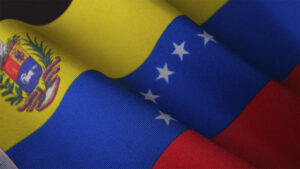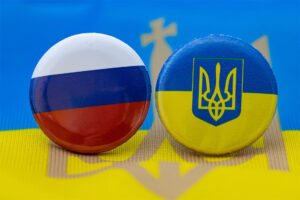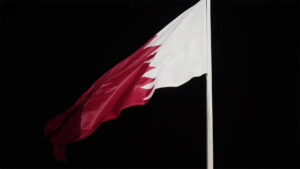Trump just cut off military and economic aid to Columbia, because of…you guessed it…a political clash with President Petro. Bonus points if you guessed that this move would have some adverse effects, like reviving the Colombian cocaine trade.
Colombia’s geography is divided between the fertile lowlands (ideal for coca cultivation) and the populated highlands. Naturally, a divide between the two formed; that fueled a civil war, until the US stepped in to help defeat the militias and fund new programs to replace coca, with coffee, flowers, and cocoa.
President Petro—a former M-19 guerrilla member turned political malcontent—has been alienating allies and as US support fades, these once successful programs will collapse. Leaving coca as one of the few alternatives available to these farmers. And it just so happens that the US is likely to see a shift away from fentanyl and back to more traditional drugs…like cocaine.
Transcript
Hey all, Peter Zeihan here. Coming to you from Madison, Wisconsin. And I thought this would be a great backdrop to talk about cocaine. For those of you who have been following the increasing drama that we’re having in American foreign relations with Latin America, Colombia is the new country that is in the Trump administration’s crosshairs. Specifically the president of Colombia.
Petro and Trump have had a personal and professional falling out, and the United States is now withdrawing military support as well as economic aid. And I think it’s good to put this into context so you can see what’s coming. The reason that two thirds of the world’s cocaine comes from Colombia is really straightforward. It’s got the climate for it.
Colombia is basically a series of lowland tropical zones, either on the Pacific or in the, Amazonian basin, separated by a couple of really high mountain ranges. Now, people not liking it too hot or humid tend to live in the middle of those ranges. So below the tundra line, but above the tropic line at high elevations, not too hot.
That way the heat gets cut. The humidity gets cut. Cocaine doesn’t like it there. Cocaine doesn’t like frost. It likes to be lower down more in the foothills between like 1000ft. Maybe 7000ft. It likes a lot of sun 12 hours, a sunny day would be great. It likes a lot of humidity, but it doesn’t like a lot of wet.
So growing on the sides of mountains where there’s a degree of fertility, further down is what it’s after. And once warmth, but not too much heat. What humidity, but not too much wet. Never never, never once cold. Well, if you put an illicit narcotic with a preferred geography in one part of a country, and you put the people with a preferred climate in geography in a different part of the country, what you get is a parallel economic system, one based on smuggling and drug production and one based on more normal things.
So it’s a perfect recipe for a civil war. And basically, starting about a century ago, we got one in Colombia, eventually the lowlands, the Midlands, where the cocaine could grow, developed an illicit economy that was based on narcotics smuggling, whereas the uplands where most of the Colombians actually live, where most of the mineral economic activity was, when a different direction and these two zones clash and in time, eventually ideology played a part with international leftism being more powerful in the coca producing regions.
And more laissez faire, semi capitalist, conservatism and normal economic activity playing a higher role in the higher lands. Now, by the time we get to the 2000s, the 80s were behind us. Miami Vice is behind us. United States realizes that cooking’s a real problem, and the
Colombian cartels were a real national security threat. So the United States engaged in a $30 billion program of partnership with the Colombians to build out their military to basically win the Civil War. And by the time we got to the early 20 tens, that basically how things had played out far had been broken. They had been reduced to a much smaller footprint. And by the time you get to about 2015, they were basically spent as a military and a political force.
But the cocaine didn’t go away because cocaine had a very different geography than where most Colombians lived. And so you had new forces that rose up to take place, specifically, the more right wing paramilitaries that were formed near and partnered with the government to fight before they all of a sudden moved into the old dark zones and started trafficking the cocaine themselves.
So as often happens in a war, the victors then split and now we have a different problem. So the US government shifted tact because this was no longer a civil war in the traditional sense. The U.S. started to invest in economic programs in Colombia so that the small farm holders would have an option for their own economic wherewithal that was not dependent on narcotics.
That’s flowers. That’s coco for chocolate, that’s coffee. Colombia still produces some of the world’s best coffee. Those three things together supplied by American Aid to help with infrastructure and development and planting and financing for farmers, was wildly successful. Until four years ago, we had a split in the Colombian political establishment. You see, until that point, pretty much all of the presidents of Colombia came from that kind of center, right?
Laissez faire economics, strong national security point of view, because they had been in this civil war for so long. Well, four years ago we got a new guy by the name of Petro, who had a different view and had more political loyalties in some of these more outlying regions that had been somewhat disadvantaged by the civil war in the transition since, Petro is not the greatest politician, he calls himself a center left, as he calls himself, sometimes a socialist.
A lot of people call him things that are worse, but really, he’s a populist. He believes that the institutions of Colombia are dead set against him and trying to, disrupt his presidency. He’s not a very good leader. He hasn’t selected very good people to be on his cabinet. He thinks that tariffs are a great economic policy to encourage domestic industrial development.
He’s not really big, big fan of a rule of law, because it’s often on the opposite side of what he wants to do. And he focuses on his personal charisma to drive things through instead of building coalitions to get policies adopted. Does any of this sound familiar? I mean, he’s basically the Colombian version of Trump, just with some different political coloring.
Anyway, as you might guess, you get two charisma forward non technocrats who, are very larger than life and bombastic with their personal politics. And the two of them have not got a lot. Trump and Petro. So we had a falling out very recently because Trump’s policies a little bit further to the east, have been blowing up ships outside of Venezuela.
Colombia is a neighbor, Colombia. In Venezuela, they have never really gotten along. It’s not like the rallies or anything like that, but it has gotten a little bit too close to home. And Petro said that the last vessel that got blown up was actually Colombian fishermen. Now, no one on either side has provided any data or proof to their claims or their counterclaims.
Was it Venezuelan drug smugglers don’t know us, hasn’t provided the US hasn’t provided any information. Was it Colombian fishermen? Don’t know. The Colombian government hasn’t provided any information, but it provided the spark that caused this current blowup between the two countries. And so the Trump administration has ended all military assistance and is in the process of ending all economic assistance.
Now, whether this is a good or bad idea for foreign relations, I’ll let you decide that for yourself. But I can tell you exactly what it’s going to mean for cocaine without the military assistance. It’s arguable that the Colombian government doesn’t have the ability to impose rule of law through the coca growing regions, and without that economic system, it’s absolutely impossible for farmers in an outlined Highland area like this to economically viably grow things like the basics for chocolate and coffee and flowers.
And so they’re going to turn back to growing coca to make cocaine. So is Petro a good leader? No. Absolutely not. And we’ve got elections next year. Hopefully he’ll be gone. But in the meantime, the Trump administration established the perfect environment to make sure that cocaine acreage explodes. And now that Americans seem to finally be turning away from fentanyl to more normal drugs, cocaine is there to fill the gap.









